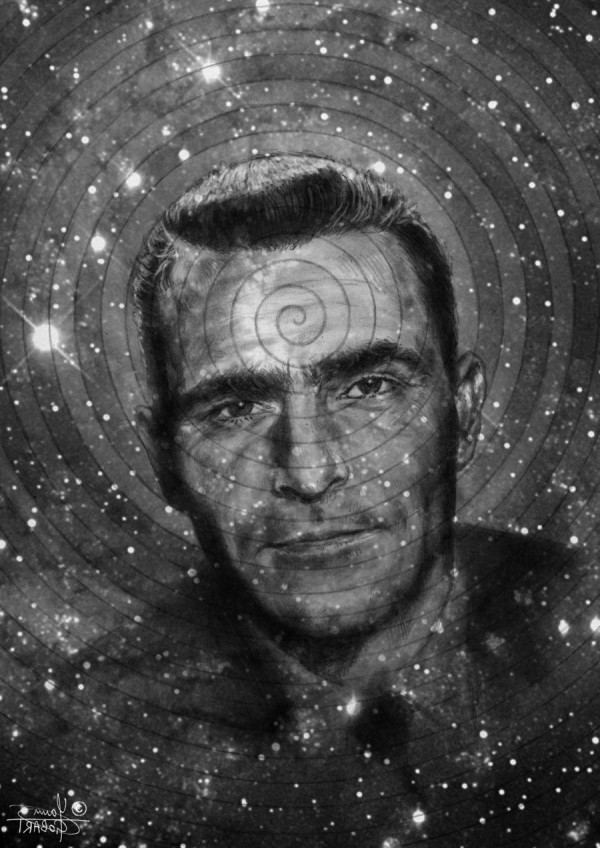Illustration by YannGOBART
The American Philosophical Presents
IT’S ABOUT TIME: Short films from the Secret Cinema Archive
7 PM tonight at American Philosophical Society
Philosophical Hall, 104 South Fifth Street, Philadelphia,
Post-screening discussion moderated by Phawker film critic Dan Buskrk
I often hear moviegoers complain that a film was too slow or too manic but of course what they are reacting to is their inability to comfortably exist within the filmmaker’s sense of time. A clock may measure consistent units of time but the timepiece’s objective mechanical conception can differ wildly from subjective time as humans perceive it, just as five minutes waiting in line for the rest room unfolds more slowly than five minutes listening to a favorite song.The Secret Cinema’s “It’s About Time” program weighs heavily on films from the 1950s and ’60s, all looking at aspects of the slippery concept we call “time.” Particularity of note are two short films both recognized by the Motion Picture Academy. One is the 1963’s Oscar-winning Best Live Action Short, An Occurrence at Owl Creek Bridge. Produced in France, Owl Creek is based on an Ambrose Bierce short story looking at the final minutes of a soldier sentenced to hanging in the American Civil War. It’s a miniature masterpiece, Rod Serling was so taken with it he bought it to broadcast on one of the very final Twilight Zone episodes. The other film is Jim Henson’s Oscar-nominated 1966 short “Time Piece.” Henson’s career as a puppeteer was on the rise when he made this sweet 9-minute gem as a labor of love. There is not a Muppet in sight, the film depends instead on the immense charm and acting skills of Henson himself, as he stumbles from one surreal situation to the next. The action all unwinds visually, time tick-tocks on through a barrage of animation and rapid-fire cuts, with Henson occasionally letting out a Kermet-esque plea, “Help!” With the invention of editing, filmmakers were able to communicate their personal sense of this intangible force in ways that no others artists had ever before ever been able to express. Music also is an expression of time yet film can completely absorb and build upon the art of music. With film a director can shorten or elongate each moment, giving the viewer a sense of the things that absorb their attention and the details they find peripheral. Part of enjoying the history of film is enjoying the rhythms of each era. Each innovation across the last century seems have have added yet more speed, from the horse to the car, from radio to the television and now to our modern world of cell phones, computers and the internet; each transition echoing our sped-up lives as popular films have gotten louder, faster and more packed with detail than ever. It seems fitting that in our modern intensely-stimulated state, the most acclaimed avant garde films often films that dare to slow us down, forcing us to look at the world as mono-taskers like the Lumiere Brothers might have perceived it over a century ago. — DAN BUSKIRK

